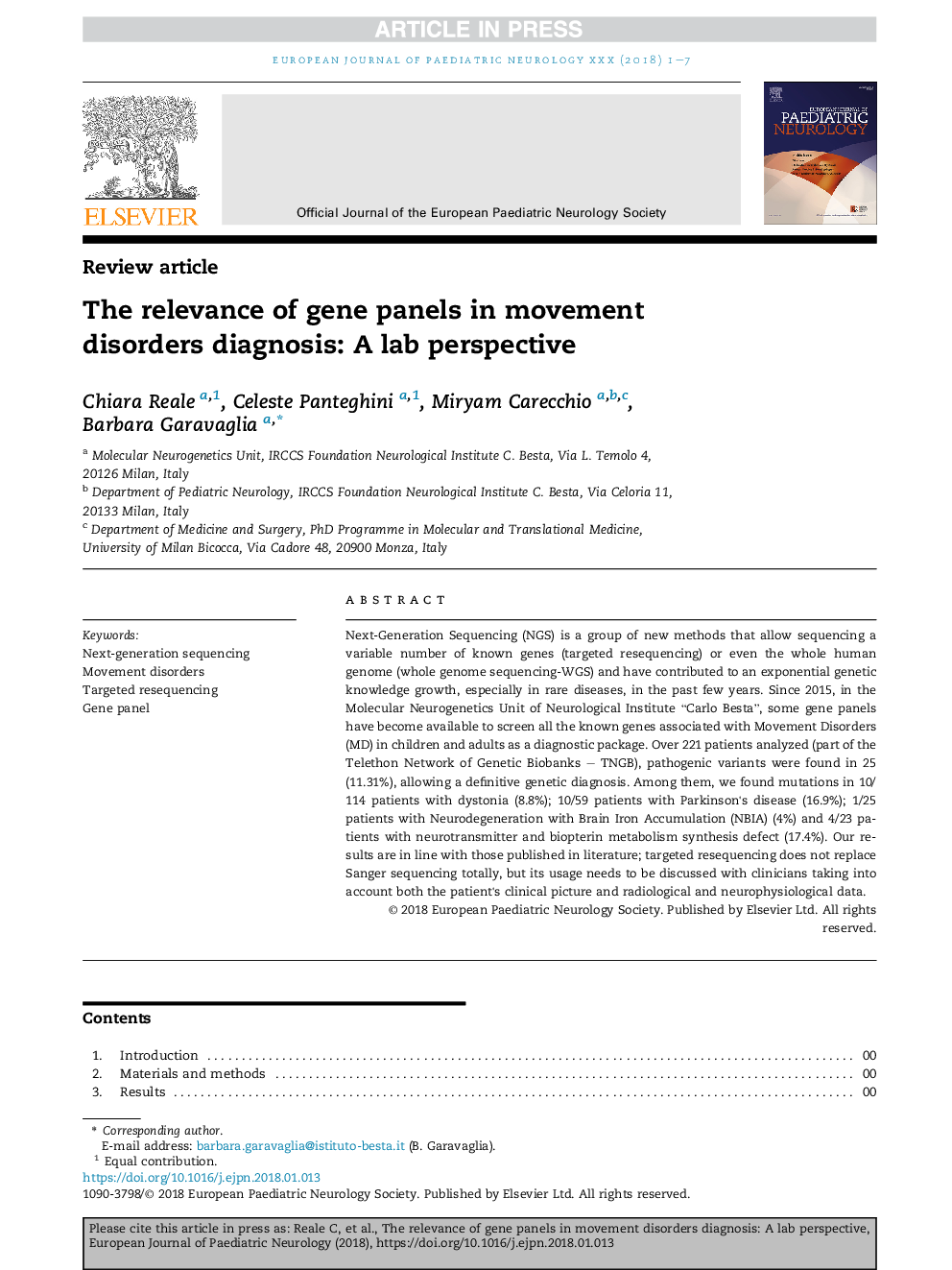| کد مقاله | کد نشریه | سال انتشار | مقاله انگلیسی | نسخه تمام متن |
|---|---|---|---|---|
| 8684410 | 1579995 | 2018 | 7 صفحه PDF | دانلود رایگان |
عنوان انگلیسی مقاله ISI
The relevance of gene panels in movement disorders diagnosis: A lab perspective
ترجمه فارسی عنوان
ارتباط پانل های ژنی در تشخیص اختلالات حرکتی: چشم انداز آزمایشگاهی
دانلود مقاله + سفارش ترجمه
دانلود مقاله ISI انگلیسی
رایگان برای ایرانیان
کلمات کلیدی
توالی بعدی نسل، اختلالات حرکتی، تسلیم هدفمند، پانل ژن،
موضوعات مرتبط
علوم زیستی و بیوفناوری
علم عصب شناسی
علوم اعصاب تکاملی
چکیده انگلیسی
Next-Generation Sequencing (NGS) is a group of new methods that allow sequencing a variable number of known genes (targeted resequencing) or even the whole human genome (whole genome sequencing-WGS) and have contributed to an exponential genetic knowledge growth, especially in rare diseases, in the past few years. Since 2015, in the Molecular Neurogenetics Unit of Neurological Institute “Carlo Besta”, some gene panels have become available to screen all the known genes associated with Movement Disorders (MD) in children and adults as a diagnostic package. Over 221 patients analyzed (part of the Telethon Network of Genetic Biobanks - TNGB), pathogenic variants were found in 25 (11.31%), allowing a definitive genetic diagnosis. Among them, we found mutations in 10/114 patients with dystonia (8.8%); 10/59 patients with Parkinson's disease (16.9%); 1/25 patients with Neurodegeneration with Brain Iron Accumulation (NBIA) (4%) and 4/23 patients with neurotransmitter and biopterin metabolism synthesis defect (17.4%). Our results are in line with those published in literature; targeted resequencing does not replace Sanger sequencing totally, but its usage needs to be discussed with clinicians taking into account both the patient's clinical picture and radiological and neurophysiological data.
ناشر
Database: Elsevier - ScienceDirect (ساینس دایرکت)
Journal: European Journal of Paediatric Neurology - Volume 22, Issue 2, March 2018, Pages 285-291
Journal: European Journal of Paediatric Neurology - Volume 22, Issue 2, March 2018, Pages 285-291
نویسندگان
Chiara Reale, Celeste Panteghini, Miryam Carecchio, Barbara Garavaglia,
